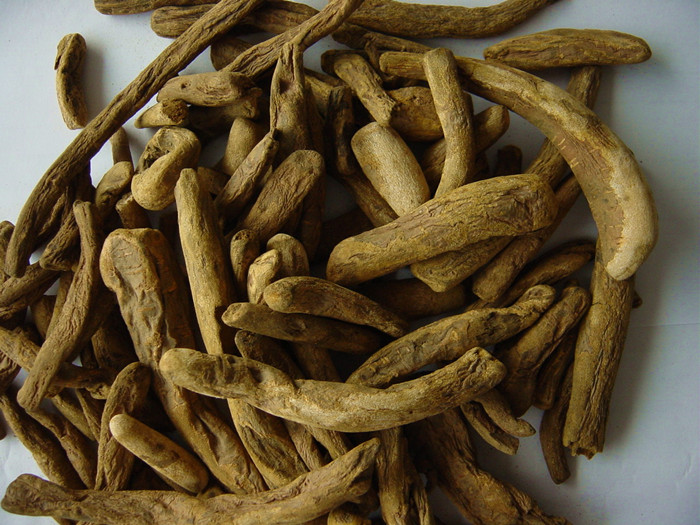Rhubarb Root Shuiken Peeled

INTRUDUCTION
Rhubarb is a plant. The root and
underground stem (rhizome) are used to make medicine.
Rhubarb is used primarily for digestive
complaints including constipation, diarrhea, heartburn, stomach pain,
gastrointestinal (GI) bleeding, and preparation for certain GI diagnostic
procedures. Some people use rhubarb so they have to strain less during bowel
movements; this reduces pain from hemorrhoids or tears in the skin lining the
anal canal (anal fissures).
Rhubarb is sometimes applied to the skin to
treat cold sores.
In food, rhubarb stems are eaten in pie and
other recipes. Rhubarb is also used as a flavoring agent.
USES
Stomach bleeding. Taking rhubarb by mouth
as a powder or extract seems to help treat stomach bleeding.
Cold sores. Applying rhubarb along with
sage to herpes cold sores seems to improve healing. It might be as effective as
acyclovir (Zovirax) cream.
Kidney failure. Most research suggests that
taking rhubarb extract, with or without captopril, improves kidney function in
people with kidney failure.
Constipation. Early research suggests that
taking rhubarb and Glauber’s salt mixture improves constipation.
Gum disease. Early research suggests that
rinsing with a rhubarb extract can help treat gum disease.
Kidney disease (glomerulonephritis). Early
research suggests that taking a combination of 10 herbs including rhubarb daily
for 3 months might improve kidney function in people with glomerulonephritis.
Gonorrhea. Early research suggests that
taking tablets that contain rhubarb extract might reduce symptoms of gonorrhea.
High cholesterol. Early research suggests
that taking rhubarb, alone or with water plantain, can reduce total cholesterol
and low-density lipoprotein (LDL or “bad”) cholesterol in people with high
cholesterol.
Cancer affecting the area behind the nose
(nasopharyngeal cancer). Early research suggests that taking a specific product
containing rhubarb and other herbs (Shenlong) along with radiation therapy does
not improve healing in people with nasopharyngeal cancer.
Non-alcoholic fatty liver disease. Early
research suggests that taking a specific Chinese herbal medicine containing
rhubarb, giant knotweed, dried green orange peel, and dried old orange peel
(Danning Pian) might improve liver function in people with non-alcoholic fatty
liver disease.
Obesity. Some early research suggests that
taking rhubarb extract 1-3 times daily for up to 3 months might reduce body
weight in obese people. However, other research shows that taking rhubarb with
other herbs does not reduce weight.
High blood pressure during pregnancy. Early
research shows that taking rhubarb extract daily starting 28 weeks into
pregnancy and continuing until delivery can reduce the risk of high blood
pressure during pregnancy.
Life-threatening infection (sepsis). Early
research suggests that taking rhubarb powder along with standard treatments
might help cure and reduce the risk of death from a life-threatening infection
called sepsis.
Recovery after surgery. Early research
suggests that adding rhubarb to intravenous (IV) nutrition in people undergoing
surgery for stomach cancer can improve recovery.
Indigestion.
Stomach pain.
Hemorrhoids.
Diarrhea.
Other conditions.